David Sullivan
Defense against Prompt Injection Attacks via Mixture of Encodings
Apr 10, 2025Abstract:Large Language Models (LLMs) have emerged as a dominant approach for a wide range of NLP tasks, with their access to external information further enhancing their capabilities. However, this introduces new vulnerabilities, known as prompt injection attacks, where external content embeds malicious instructions that manipulate the LLM's output. Recently, the Base64 defense has been recognized as one of the most effective methods for reducing success rate of prompt injection attacks. Despite its efficacy, this method can degrade LLM performance on certain NLP tasks. To address this challenge, we propose a novel defense mechanism: mixture of encodings, which utilizes multiple character encodings, including Base64. Extensive experimental results show that our method achieves one of the lowest attack success rates under prompt injection attacks, while maintaining high performance across all NLP tasks, outperforming existing character encoding-based defense methods. This underscores the effectiveness of our mixture of encodings strategy for both safety and task performance metrics.
A Framework for Automated Measurement of Responsible AI Harms in Generative AI Applications
Oct 26, 2023



Abstract:We present a framework for the automated measurement of responsible AI (RAI) metrics for large language models (LLMs) and associated products and services. Our framework for automatically measuring harms from LLMs builds on existing technical and sociotechnical expertise and leverages the capabilities of state-of-the-art LLMs, such as GPT-4. We use this framework to run through several case studies investigating how different LLMs may violate a range of RAI-related principles. The framework may be employed alongside domain-specific sociotechnical expertise to create measurements for new harm areas in the future. By implementing this framework, we aim to enable more advanced harm measurement efforts and further the responsible use of LLMs.
Semantic Classification of Tabular Datasets via Character-Level Convolutional Neural Networks
Jan 24, 2019
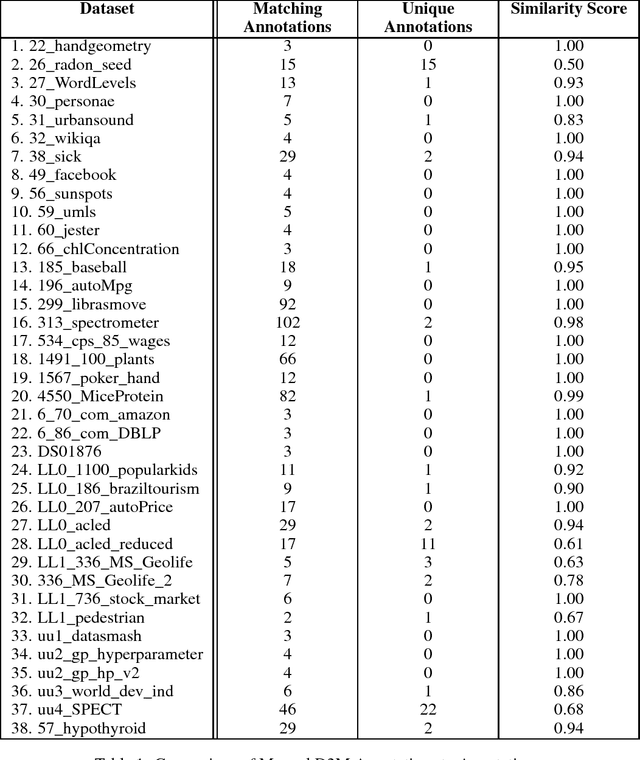


Abstract:A character-level convolutional neural network (CNN) motivated by applications in "automated machine learning" (AutoML) is proposed to semantically classify columns in tabular data. Simulated data containing a set of base classes is first used to learn an initial set of weights. Hand-labeled data from the CKAN repository is then used in a transfer-learning paradigm to adapt the initial weights to a more sophisticated representation of the problem (e.g., including more classes). In doing so, realistic data imperfections are learned and the set of classes handled can be expanded from the base set with reduced labeled data and computing power requirements. Results show the effectiveness and flexibility of this approach in three diverse domains: semantic classification of tabular data, age prediction from social media posts, and email spam classification. In addition to providing further evidence of the effectiveness of transfer learning in natural language processing (NLP), our experiments suggest that analyzing the semantic structure of language at the character level without additional metadata---i.e., network structure, headers, etc.---can produce competitive accuracy for type classification, spam classification, and social media age prediction. We present our open-source toolkit SIMON, an acronym for Semantic Inference for the Modeling of ONtologies, which implements this approach in a user-friendly and scalable/parallelizable fashion.
Abstractive Tabular Dataset Summarization via Knowledge Base Semantic Embeddings
Apr 05, 2018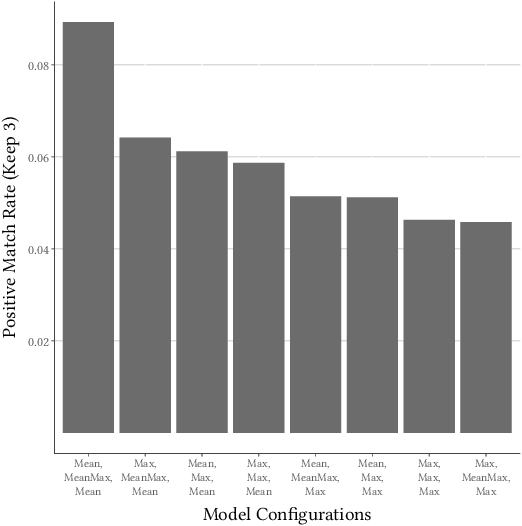
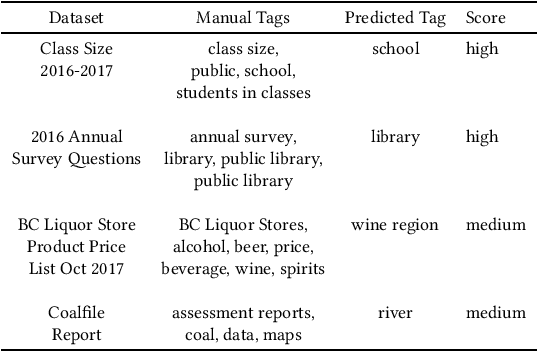
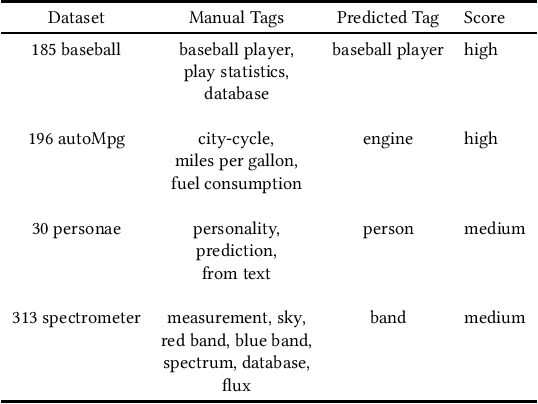
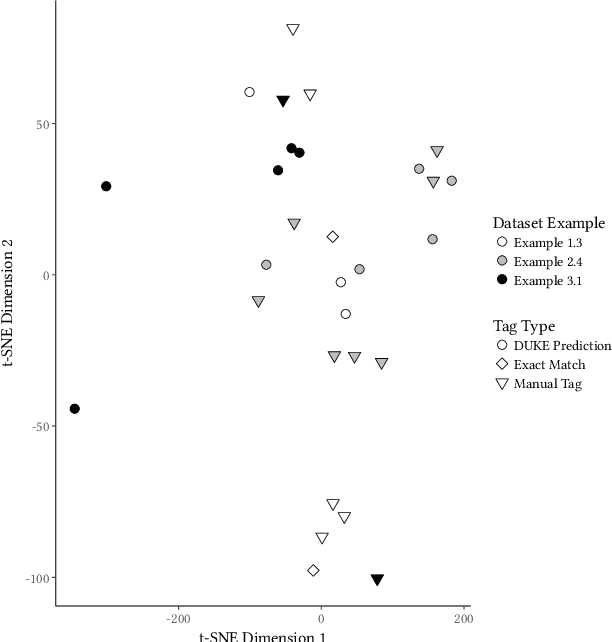
Abstract:This paper describes an abstractive summarization method for tabular data which employs a knowledge base semantic embedding to generate the summary. Assuming the dataset contains descriptive text in headers, columns and/or some augmenting metadata, the system employs the embedding to recommend a subject/type for each text segment. Recommendations are aggregated into a small collection of super types considered to be descriptive of the dataset by exploiting the hierarchy of types in a pre-specified ontology. Using February 2015 Wikipedia as the knowledge base, and a corresponding DBpedia ontology as types, we present experimental results on open data taken from several sources--OpenML, CKAN and data.world--to illustrate the effectiveness of the approach.
 Add to Chrome
Add to Chrome Add to Firefox
Add to Firefox Add to Edge
Add to Edge